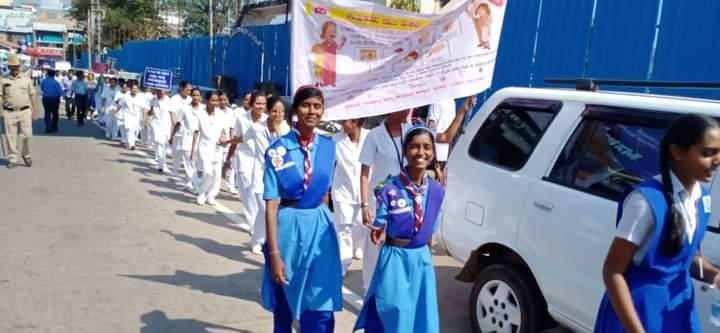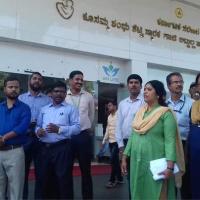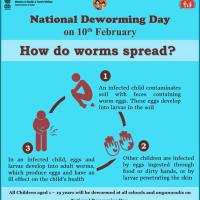
"National De-Worming Day Rally" _10/02/2020_ BSG District Association Udupi. Karnataka State. INDIA.
10th Feb -National Deworming Day.
Let's aim to curb worm infection.
globalgoals
sdg3
goodhealthandwellbeing
Good health is essential to sustainable development and the 2030 Agenda reflects the complexity and interconnectedness of the two.
It takes into account widening economic and social inequalities, rapid urbanization, threats to the climate and the environment, the continuing burden of infectious diseases, and emerging challenges such as noncommunicable diseases.
Universal health coverage will be integral to achieving SDG 3, ending poverty and reducing inequalities.
Emerging global health priorities not explicitly included in the SDGs, including antimicrobial resistance, also demand action.
SwasthaBharat
Get your child dewormed on NationalDewormingDay for a SwasthaBharat & WormFreeIndia Avoid harmful effects. HealthForAll AyushmanBharatHWCs KoiPeecheNaChoote
National Deworming Day - Rally by Bharat Scouts and Guides District Association Udupi. KARNATAKA. India.
✔The day aims at eradicating intestinal worms also known as Soil-Transmitted Helminths (STH), among children in the age group of 1-19 years. According to the World Health Organisation, about 241 million children in India in the ages of 1-14 years are at a risk of parasitic intestinal worms or STH. This means, India accounts for approximately 28 per cent of the total number of children globally estimated to be at-risk of STH infections.
Here is everything you need to know about deworming and intestinal worms or Soil-Transmitted Helminths (STH):
What Are Intestinal Worms?
Intestinal worms are parasites that live in the human intestines and consume nutrients and vitamins that a child consumes. There are three main types of STH that infect people, roundworm (Ascaris lumbricoides), whipworm (Trichuris trichiura) and hookworms (Necator americanus and Ancylostoma duodenale). These worms depend on the human body for their food and survival and while being there, they lay thousands of eggs each day.
Causes Of Intestinal Worms Or Soil-Transmitted Helminths (STH)
STHs including hookworm, roundworm, and whipworm are transmitted via eggs in faeces deposited in the local environment, typically through open defecation or lack of proper hygiene after defecating, says Dr Antaryami Dash, Head of Nutrition at Save The Children.
Infected people who defecate in the open spread worm eggs in their faeces. Subsequently, the eggs contaminate the soil which further contaminates food and water, spreading the infection.
Intestinal worm infection often makes its way through vegetables which are not properly washed, peeled and cooked; contaminated water; and outdoor activities – children who play in soil and then put their hands in their mouths without washing them.
How To Prevent Worm Infestation:
The foremost step is to improve hygiene which includes washing hands particularly before eating and after using toilet; using sanitary latrines; wearing slippers/shoes; keeping the surroundings clean; ensuring nails are short and clean.








